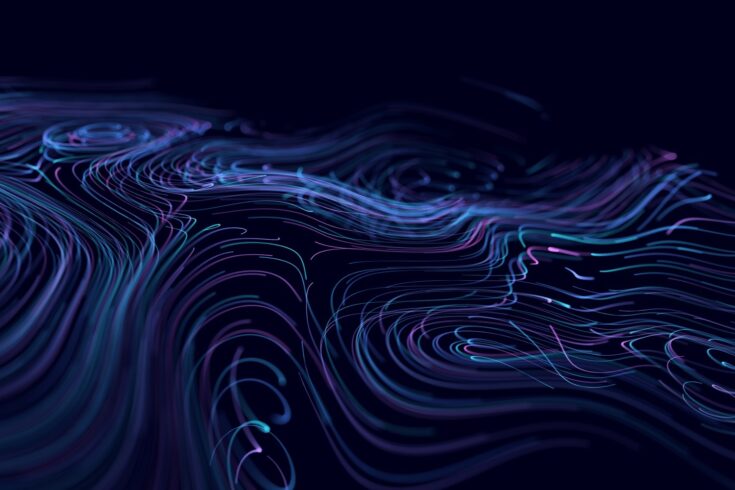The consortium, led by the University of Glasgow, will develop designs for new hardware and data analysis techniques for use in two future international gravitational wave detector development programmes.
Supported by a total of £7 million, it will ensure that UK universities and researchers play a key role in helping astronomers probe the furthest reaches of the cosmos.
Ripples in space time
Gravitational wave detectors work by bouncing lasers between mirrors suspended at each end of long pipes.
Gravitational waves are faint ripples in spacetime caused by enormous astronomical events like the collision of black holes. As they pass through the detectors, they cause miniscule variations in the distance between the mirrors measured by the lasers.
Analysis of the data captured during the passthrough of the gravitational waves can reveal a wealth of information about their origins in space.
Looking to the future
UK scientists, supported by the Science and Technology Facilities Council (STFC), have been involved in gravitational wave research for several decades.
They contributed substantially to the current generation of gravitational wave observatories, including:
- Laser Interferometer Gravitational-Wave Observatory (LIGO) in the US
- Virgo in Italy
- Kamioka Gravitational Wave Detector in Japan
The LIGO observatory made the historic first detection of gravitational waves in 2015, opening up this entirely new field of astronomy.
This latest investment will support UK scientists over the next three years to contribute to two future major gravitational wave experiments.
Those projects, Cosmic Explorer in the US and the Einstein Telescope in Europe, are currently in the early stages of design work. They are expected to be fully constructed and online by the end of the next decade.
Pushing the boundaries
The international collaborations behind the planned next-gen detectors, expect that new observatories will be sensitive enough to detect signals from the very edge of the Universe.
The expanded reach of the detectors will help cast new light on how black holes were formed in the earliest epochs of time, how matter behaves in neutron stars and pick up gravitational waves which current observatories are unable to detect.
The expanded reach of the detectors will support a variety of research aims such as:
- casting new light on how black holes were formed in the earliest epochs of time
- uncovering how matter behaves in neutron stars
- picking up gravitational waves which current observatories are unable to detect
They will also be significantly more ambitious in their design, with lasers bounced between mirrors suspended free of external vibration placed up to 40 kilometres (km) apart instead of 4km, as they are in current detectors.
Innovative new solutions
Professor Sheila Rowan, Director of the University of Glasgow’s Institute for Gravitational Research, and lead investigator on the project said:
I’m excited to be continuing our work with UKRI, STFC and partners across the UK to develop key components of the next generation of gravitational wave observatories, which have the potential to revolutionise our understanding of the universe
We’ve learned a vast amount from LIGO, Virgo and KAGRA already, and we’re currently partway through our fourth major observing run which is bringing us, on average, several new detections a week.
There are challenges for us to tackle but here in the UK, we have a huge amount of experience from our work designing, building, and refining the hardware and software at the heart of today’s gravitational wave detectors. We’re looking forward to getting started on assembling the detectors of tomorrow.
New horizons
Professor Mark Thomson, Executive Chair of STFC and UK Research and Innovation (UKRI) Champion for Infrastructure, said:
The detection of gravitational waves has been one of the most exciting recent developments in science and has provided us with entirely new way of observing the universe.
This new UKRI investment will enable UK scientists to play a key role in the international effort to develop the next generation of even more sensitive gravitational wave observatories, which will greatly expand our understanding of the cosmos.
Further information
The newly funded UK consortium brings together the universities of:
- Birmingham
- Cardiff
- Glasgow
- Portsmouth
- Southampton
- Strathclyde
- West of Scotland

